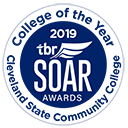Median wages
$66,350
Diagnose or evaluate mental and emotional disorders of individuals through observation, interview, and psychological tests, and formulate and administer programs of treatment.
- Interact with clients to assist them in gaining insight, defining goals, and planning action to achieve effective personal, social, educational, and vocational development and adjustment.

- Identify psychological, emotional, or behavioral issues and diagnose disorders, using information obtained from interviews, tests, records, and reference materials.

- Use a variety of treatment methods, such as psychotherapy, hypnosis, behavior modification, stress reduction therapy, psychodrama, and play therapy.

- Counsel individuals and groups regarding problems, such as stress, substance abuse, and family situations, to modify behavior or to improve personal, social, and vocational adjustment.

- Discuss the treatment of problems with clients.

- Write reports on clients and maintain required paperwork.

- Consult with or provide consultation to other doctors, therapists, or clinicians regarding patient care.

- Obtain and study medical, psychological, social, and family histories by interviewing individuals, couples, or families and by reviewing records.

- Evaluate the effectiveness of counseling or treatments and the accuracy and completeness of diagnoses, modifying plans and diagnoses as necessary.

- Select, administer, score, and interpret psychological tests to obtain information on individuals' intelligence, achievements, interests, and personalities.

- Develop and implement individual treatment plans, specifying type, frequency, intensity, and duration of therapy.

- Refer clients to other specialists, institutions, or support services as necessary.

- Maintain current knowledge of relevant research.

- Consult reference material, such as textbooks, manuals, and journals, to identify symptoms, make diagnoses, and develop approaches to treatment.

- Observe individuals at play, in group interactions, or in other contexts to detect indications of mental deficiency, abnormal behavior, or maladjustment.

- Provide occupational, educational, and other information to individuals so that they can make educational and vocational plans.

- Plan and develop accredited psychological service programs in psychiatric centers or hospitals, in collaboration with psychiatrists and other professional staff.

- Direct, coordinate, and evaluate activities of staff and interns engaged in patient assessment and treatment.

- Develop, direct, and participate in training programs for staff and students.

- Provide psychological or administrative services and advice to private firms and community agencies regarding mental health programs or individual cases.
- Accounting software — MPMsoft billing

- Analytical or scientific software — Comprehensive Affect Testing System CATS; Noldus Information Technology The Observer; Statistical software; Testing software

- Calendar and scheduling software — SpectraSoft AppointmentsPRO

- Internet browser software — Web browser software

- Medical software — Athena Software Penelope Case Management; Healthcare common procedure coding system HCPCS
 ; Trinity Software Solutions BEACON; UNI/CARE Pro-Filer
; Trinity Software Solutions BEACON; UNI/CARE Pro-Filer
- Office suite software — Microsoft Office

- Spreadsheet software — Microsoft Excel


- Word processing software — Microsoft Word

![]() Hot Technology — a technology requirement frequently included in employer job postings.
Hot Technology — a technology requirement frequently included in employer job postings.
- Active Listening — Giving full attention to what other people are saying, taking time to understand the points being made, asking questions as appropriate, and not interrupting at inappropriate times.

- Social Perceptiveness — Being aware of others' reactions and understanding why they react as they do.

- Speaking — Talking to others to convey information effectively.

- Complex Problem Solving — Identifying complex problems and reviewing related information to develop and evaluate options and implement solutions.

- Critical Thinking — Using logic and reasoning to identify the strengths and weaknesses of alternative solutions, conclusions or approaches to problems.

- Active Learning — Understanding the implications of new information for both current and future problem-solving and decision-making.

- Reading Comprehension — Understanding written sentences and paragraphs in work related documents.

- Service Orientation — Actively looking for ways to help people.

- Writing — Communicating effectively in writing as appropriate for the needs of the audience.

- Judgment and Decision Making — Considering the relative costs and benefits of potential actions to choose the most appropriate one.

- Monitoring — Monitoring/Assessing performance of yourself, other individuals, or organizations to make improvements or take corrective action.

- Science — Using scientific rules and methods to solve problems.

- Persuasion — Persuading others to change their minds or behavior.

- Instructing — Teaching others how to do something.

- Learning Strategies — Selecting and using training/instructional methods and procedures appropriate for the situation when learning or teaching new things.

- Systems Analysis — Determining how a system should work and how changes in conditions, operations, and the environment will affect outcomes.

- Coordination — Adjusting actions in relation to others' actions.

- Negotiation — Bringing others together and trying to reconcile differences.

- Time Management — Managing one's own time and the time of others.










